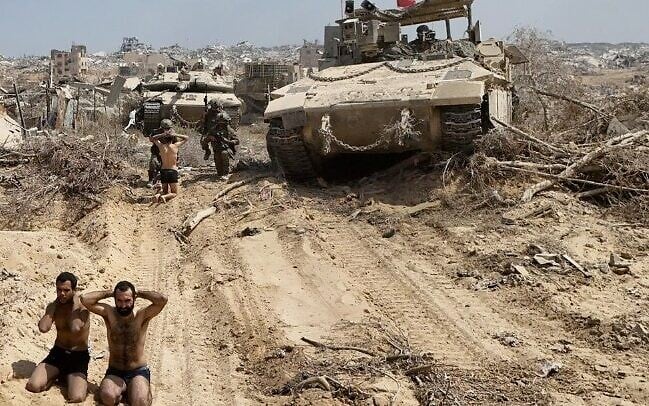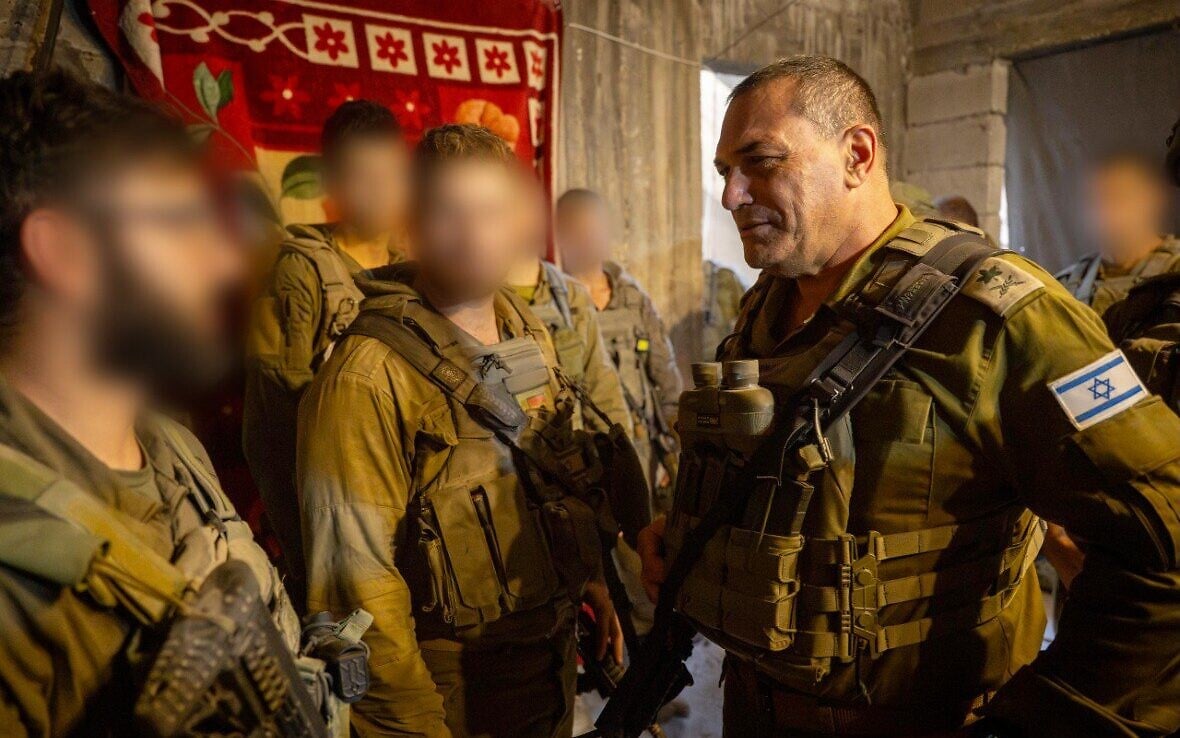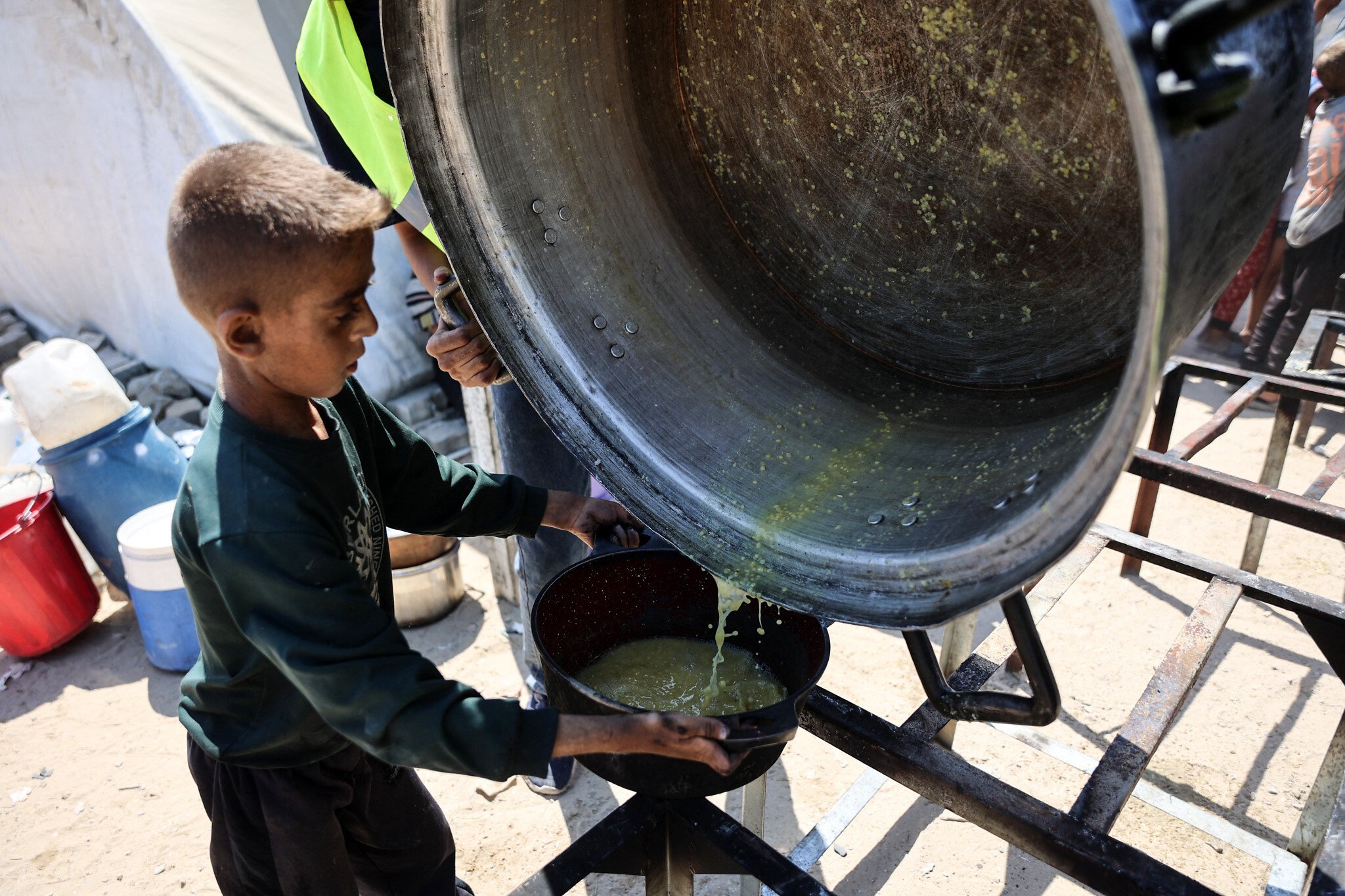



The Israel Defense Forces defeated Hamas’s Beit Hanoun battalion, the military declared on Saturday, after three of the terror group’s operatives surrendered to troops of the Givati Brigade in the northern Gaza town.
The operatives emerged from a tunnel and surrendered to the forces in the area, the IDF said, adding that they told the troops they had sought to flee the area after another gunman with them was killed during a previous exchange of fire with the military.
The Hamas gunmen also led the forces to a weapons depot near the tunnel from which they emerged, where the IDF said the troops found numerous weapons and equipment.
The military stated that troops also discovered food, water, and other supplies inside the tunnel, suggesting it could be used for long-term underground residence.
The IDF said the three operatives were taken for further interrogation, the weapons were seized, and combat engineers are mapping out the tunnel ahead of its demolition.
“The Beit Hanoun Battalion, which posed a threat to Nir Am and Sderot, has surrendered and been defeated by Givati Brigade troops,” the IDF said.
Defense Minister Israel Katz posted footage of the operatives surrendering on X. “Hamas terrorists are surrendering in Beit Hanoun. They are emerging from the burrows into the destroyed city,” he wrote. “The IDF is destroying both the above and the underground [infrastructure] to defend the city of Sderot.”
Last week, during a tour of Beit Hanoun, the commander of the Givati Brigade told reporters that there were just four or five remaining gunmen in the area.
The IDF has operated in Beit Hanoun five times since the beginning of the war, slowly degrading Hamas’s battalion there, which, before October 7, 2023, consisted of over 1,000 operatives.
The majority of the Hamas gunmen in the Beit Hanoun Battalion were either killed during the fighting or fled, like the battalion commander, Hussein Fayyad.
The IDF’s declaration on Beit Hanoun followed a Channel 12 news report, which stated that Chief of Staff Lt. Gen. Eyal Zamir had pleaded with cabinet ministers this week to present a strategy for how they wanted the army to proceed amid the standstill in hostage talks.
Zamir reportedly emphasized that the government lacks a clear game plan, as Jerusalem’s diplomatic standing has plummeted due to the humanitarian crisis in the Gaza Strip.
On Friday, Zamir told troops inside Gaza he estimates “that in the coming days we will know whether we will be able to reach a partial deal to release our hostages,” otherwise “the fighting will continue unabated.”
Israel has been facing growing global scrutiny over the amount of aid distributed to civilians in Gaza since a ceasefire with Hamas ended in March, amid reports of hunger in the enclave. Much of the criticism has focused on the hundreds of reported deaths at aid distribution sites run by the Israel-and US-backed Gaza Humanitarian Foundation.
Hospitals in Gaza reported Saturday the killing of more than a dozen people, eight of them food-seekers, by Israeli fire as Palestinians endured severe risks in their search for food amid airdrops and restrictions on overland aid delivery.
Near a GHF distribution site, Yahia Youssef, who had come to seek aid, described to the Associated Press a panicked scene now grimly familiar.
After helping carry out three people wounded by gunshots, he said he looked around and saw many others lying on the ground, bleeding.
“It’s the same daily episode,” Youssef said.
In response to questions about several eyewitness accounts of violence at the northernmost of GHF’s four sites, the GHF media office said “nothing [happened] at or near our sites.”
Meanwhile, the IDF announced the largest airdrop operation since efforts to increase the supply of aid to Gaza began, with 126 packages of humanitarian supplies from six countries being dropped by aircraft in the coastal enclave.
Aircraft from Jordan, Egypt, the United Arab Emirates, and — for the first time in over a year — Spain, Germany, and France airdropped food in both northern and southern Gaza.
The IDF said the airdrops were carried out “in accordance with the directives from the political echelon and as part of the cooperation between Israel, the UAE, Jordan, Egypt, Spain, France, and Germany.”
The airdrops are part of a “series of actions aimed at improving the humanitarian response in the Gaza Strip,” the military said.
“The IDF will continue to work in order to improve the humanitarian response in the Gaza Strip, along with the international community, while refuting the false claims of deliberate starvation in Gaza,” it added.
The war between Israel and Hamas broke out on October 7, 2023, when Hamas-led terrorists invaded Israel, killing some 1,200 people, mostly civilians, and kidnapping 251. Of the 50 hostages who remain in Gaza, the IDF has confirmed the deaths of 28.
The Hamas-run Gaza health ministry says more than 60,000 people in the Strip have been killed or are presumed dead in the fighting so far, though the toll cannot be verified and does not differentiate between civilians and fighters. Israel says it has killed some 20,000 combatants in battle as of January and another 1,600 terrorists inside Israel during the October 7 onslaught.
Israel has said it seeks to minimize civilian fatalities and stresses that Hamas uses Gaza’s civilians as human shields, fighting from civilian areas including homes, hospitals, schools and mosques.
Israel’s toll in the ground offensive against Hamas in Gaza and in military operations along the border with the Strip stands at 459. The toll includes two police officers and three Defense Ministry civilian contractors.


